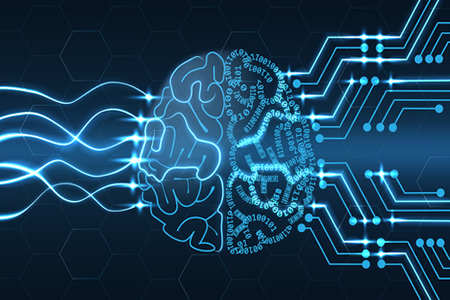AI diagnostics – the use of artificial intelligence-based systems to help doctors diagnose medical complaints – may seem to be in the realm of Star Trek, but these systems are currently showing tremendous potential in healthcare. Some machine learning systems are now even outperforming highly trained medical professionals with years of experience.
Recently, an AI system has been trialed at Boston’s Beth Israel Deaconess Hospital and has been shown to be highly accurate at identifying bacteria in blood samples – with a level of accuracy of between 93% and 95%.
A study conducted at Thomas Jefferson University Hospital in Philadelphia showed its AI-based system was capable of diagnosing tuberculosis from X-ray images in with 96% accuracy. In that case, a higher detection rate than many human radiologists.
AI-based systems have also been shown to be better at detecting diabetes-related changes in retinal images than humans, while Google researchers have trained AI systems to detect the spread of breast cancer to the lymph nodes with a degree of accuracy comparable to pathologists.
Now, AI diagnostics systems have been developed that can detect cardiovascular diseases. One study in the UK involved training AI diagnostics systems using the data of 295,000 patients, with the system correlating medical histories with rates of heart attacks. When provided with records of a further 82,000 patients, the system was able to predict which patients would likely have heart attacks.
When compared to predictions made by humans using current best practice guidelines of the American College of Cardiology/American Heart Association, the AI diagnostics system was found to be better at predicting heart attacks – by 7.6% – than the ACC/AHA method. The system was also able to detect errors in the ACC/AHA guidelines, and added in two new risk factors that were stronger predictors of future heart attacks – mental illness and the taking of oral corticosteroids.
The new AI diagnostics system developed by Ultromics has similarly been shown to outperform human counterparts. The system extracts and analyzes more than 80,000 data points from a single echocardiogram images and uses machine learning algorithms to assess the images. The system has recently been tested in clinical trials at six cardiology units in the UK and has improved diagnostic accuracy of coronary heart disease from 80% to 90%.
The use of AI diagnostics in the UK has therefore been predicted to save the NHS millions, not only helping to diagnose future heart attacks, but also to detect lung cancer more rapidly, allowing patients to receive treatment far earlier, improving patient outcomes and avoiding expensive treatments.
The NHS currently spends more than £600 million each year due to misdiagnoses from heart scans. 60,000 heart scans are performed in the UK each year, yet 12,000 cases are misdiagnosed and either result in unnecessary surgery or cost the NHS millions when patients suffer heart attacks that could have been prevented with a correct diagnosis.
Ai diagnostics systems may not yet be capable of replacing doctors, cardiologists and microbiologists, but they have potential to save health systems millions of man-hours, allowing money to be reinvested elsewhere and patient outcomes to be substantially improved.
